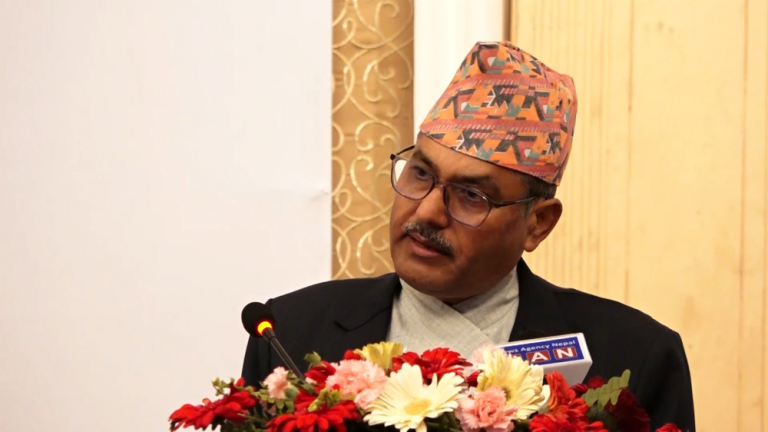Kathmandu – Governor of Nepal Rastra Bank, Maha Prasad Adhikari, has emphasized the need for legal action against individuals who misuse social media to harm the banking system. Speaking during a discussion on the Banking Offenses and Punishment (Second Amendment) Bill, 2080, held at the Finance Committee of the Federal Parliament House of Representatives, Governor Adhikari stressed the importance of including provisions in the legislation that define such actions as criminal offenses.
He highlighted the potential dangers posed by individuals with large social media followings who spread false information about banks, such as claiming that a bank is failing or urging people to withdraw their money. According to him, even if a small fraction of their followers act on these claims, it could cause panic, leading to queues at banks and potentially destabilizing the entire banking system.
Governor Adhikari also pointed out that this issue is not limited to cooperatives but can affect any bank if allowed to continue unchecked. He noted that the misuse of social media to spread negative news about banks has been on the rise, and such actions should be recognized as criminal behavior if they go beyond legitimate concerns and approval processes.
He cited the recent recovery challenges in Nepal’s banking sector, which have persisted for the past year and a half, as an example of the harm caused by such activities. Some individuals, he mentioned, have led campaigns encouraging others not to repay loans of up to 20 lakh rupees, further complicating the banking environment. He warned that this behavior has made banks hesitant to lend, fearing further losses, and called for serious consideration of these issues by the committee.
Governor Adhikari suggested that if the banking system fails, the impact would not be limited to a single bank but would affect the entire financial system. He advocated for strict penalties to prevent the spread of false information that could destabilize the sector. He reminded the committee that the banking offenses legislation, which began in 2064, was designed to address issues such as check dishonoring, which disrupts public financial responsibilities and affects the broader economic system.
Attorney General Ramesh Badal also contributed to the discussion, explaining that section 4 of the proposed bill prohibits unauthorized loans, but questioned whether prosecution is necessary if all interest and damages are repaid. He clarified that those who attack the banking system through fraudulent documents, fake cards, or hacking will not be exempt from punishment, even if they settle with the state, which could benefit from such settlements.
Badal added that fraud and money laundering are already classified as crimes, and if settlement agreements can resolve fraud cases, similar provisions could apply to banking transactions between individuals. He emphasized that section 8 should prevent credit abuse and suggested that if all debts are cleared, criminalization might not be required.
Regarding section 11, Badal proposed that if a loan issue between a bank and borrower is resolved, there should be legal provisions to handle it appropriately. He agreed that the bill’s proposed system of lesser punishment for offenses like check dishonoring is suitable and noted that government banks should not conduct transactions without proper approval from the National Bank of India.



 About Us
About Us
Comment